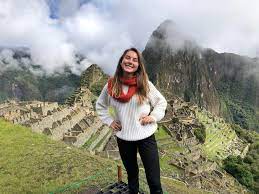The opportunity to spend a time-off in Latin America can be an unforgettable experience, particularly when it’s combined with volunteer work. It is important to engage in volunteering with a sustainable perspective to ensure that your efforts genuinely help the communities you want to help. Here are some of the best practices for sustainable volunteering in the gap year.
Research and Choose the Right Organization
Before committing to an organization for volunteer work, conduct extensive research about the potential organization. Look for established non-profits or NGO’s that have a solid history of community involvement and sustainable practices. Review the reviews of past volunteers, and ensure they are putting the demands of the community above its own. By choosing the right organization, you can contribute to projects that are ethically sound and genuinely profitable.
Understand the Local Context
Each community has its own unique character, its own challenges, and needs. Make sure you are aware of the context in which you’ll be volunteering. Engage with community members as well as attend local events and gain knowledge about the social and historical context of the community. This knowledge will allow you to engage in your volunteer efforts with sensitivity and respect and ensure that your efforts are welcomed and relevant.
Be Mindful of Your Impact
While your intentions may be positive, you need to consider the possible consequences of your actions. Avoid creating dependence by providing short-term solutions that could undermine the local effort. Instead, focus on strengthening local residents and working together with them in finding sustainable solutions. Always ask for input from local stakeholders, and be willing to adjust your strategy according to their input.
Prioritize Cultural Exchange
Sustainable volunteering is not just about the work you do but also about creating authentic relationships with the community. Engage in cultural exchange by acquiring how to speak the language of your home, participating in traditional activities and expressing your own traditions. This exchange enriches your experience and builds trust and understanding between you and the community.
Reflect and Adapt
Through your volunteer experience, take time to think about your actions and results. Keep a diary to record your experiences, thoughts and feelings. This can help you identify areas for improvement and adapt your approach when needed. When you have finished Gap Year you should consider giving your thoughts to your volunteer organization to aid in their continued growth and efficiency.



